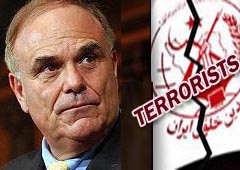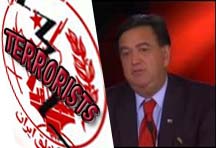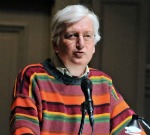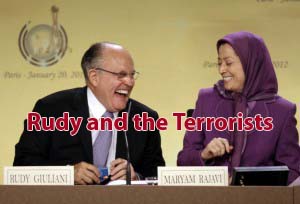WASHINGTON — Former Pennsylvania Gov. Ed Rendell acknowledged this week that the  Treasury Department is investigating payments he accepted to speak in support of an Iranian exile group on the U.S. government’s list of foreign terrorist organizations.
Treasury Department is investigating payments he accepted to speak in support of an Iranian exile group on the U.S. government’s list of foreign terrorist organizations.
Groups in the U.S. related to Iran’s Mujahideen-e Khalq (MEK) have spent millions on highly paid American speakers, including Rendell, as part of a lobbying campaign to remove the group from the foreign terrorist organizations list. It’s illegal for U.S. citizens to accept payment from foreign terrorist organizations.
Rendell, a Democrat, defended his acceptance of payments from MEK-related groups, even after the Washington Times reported that federal agents subpeonaed financial records last month from his agent, William Morris Endeavor.
Rendell said his support of the MEK was an issue of conscience, not simply a chance for him to make easy money. "I did my research extensively on this issue before I ever agreed to speak on it," he told the Washington Times. "And I am 100 percent convinced that the MEK shouldn’t be on the foreign terrorist organization list." Rendell left office in January 2011 after two terms as Pennsylvania governor. He has since joined a number of investment groups and appears regularly on MSNBC. Before he was elected governor, he was chairman of the Democratic National Committee. He couldn’t be reached Monday by The Huffington Post.
Rendell’s "extensive research" claim appears to contradict what he told the audience at his very first MEK-related speaking engagement — a July 16 conference at the Willard Hotel in Washington attended by this reporter. There, on a bipartisan panel of former administration officials, all receiving at least $20,000 for their appearances, Rendell said he had received the speaking invitation only five days before. Typically, top-tier speakers like Rendell are booked months in advance.
When he first read the offer, Rendell said he told his representative to turn it down because, as he said, "I don’t know hardly anything about this subject." Rendell said he instructed his agent to send the message, "I would have loved to come, but I don’t think I’m qualified to come."
To Rendell’s surprise, sponsors of the MEK conference weren’t concerned with his lack of knowledge. Rendell said he was "compelled and interested by the level" of the other panelists, including Howard Dean, the former Vermont governor, and Anita McBride, the former chief of staff to Laura Bush. This, Rendell said, was why "I decided to come down" to Washington.
In the four days between Rendell’s acceptance of the engagement and his appearance, he told the audience he had received information from at least four sources. "Firstly, from your representatives over the phone," he said. "Secondly, from the materials you sent me. Thirdly from a discussion [Howard Dean and I] had with some of your representatives earlier this morning. And fourthly, from listening to these panelists."
Since July, Rendell has received payment for at least six pro-MEK speeches in the U.S. and Europe — money he said comes from "citizens, both American citizens here and Iranian expats in Europe who believe in the cause.”
The MEK was founded in Iran in 1963, loosely based on Marxist principles. The group carried out bombings in Iran in the 1970s and 1980s, killing some Americans and prompting its inclusion on the U.S. foreign terrorist organizations list when it was first released in 1997.
Asked recently about the origins of the large payments the pro-MEK groups make for high-ranking former officials including himself, Rendell told the Washington Times he doesn’t actually know where the money originates, except that "there’s a very significant group of American citizens" who support the MEK. "How they pledge their money and send it in and aggregate it to pay us, I don’t know,” he told the newspaper.
Christina Wilkie

 visiting baseball parks across the United States.
visiting baseball parks across the United States.
 Rosenberg has called some of Israel’s American Jewish supporters, “Israel Firsters.” Phil Weiss already pointed out the egregious historical error they’ve made in presuming the term was coined by anti-Semites seeking to highlight Jews’ less than robust commitment to their native country.
Rosenberg has called some of Israel’s American Jewish supporters, “Israel Firsters.” Phil Weiss already pointed out the egregious historical error they’ve made in presuming the term was coined by anti-Semites seeking to highlight Jews’ less than robust commitment to their native country.

 foreign terrorist organization opposed to the Iranian regime.
foreign terrorist organization opposed to the Iranian regime.  the-ordinary adverts. Namely, a 30-second spot done in the grainy style of a spy-thriller flashback calling for the Mujahedeen-e-Khalq (MEK), an Iranian dissident group, to be taken off the official U.S. terrorist watch list. It’s a conspicuous outsider in the typical ad roster filled with car commercials and cholesterol meds, which might have led some viewers to wonder, “What’s up with that?”
the-ordinary adverts. Namely, a 30-second spot done in the grainy style of a spy-thriller flashback calling for the Mujahedeen-e-Khalq (MEK), an Iranian dissident group, to be taken off the official U.S. terrorist watch list. It’s a conspicuous outsider in the typical ad roster filled with car commercials and cholesterol meds, which might have led some viewers to wonder, “What’s up with that?” penchant for invading Islamic countries in a bid to change their regimes, and you make the mistake of saying something to that effect on the phone or writing about your concerns in an email, there is a good chance that the FBI will come after you. You will in short order find yourself with a new friend who is a Muslim just like you and who shares your frustration with American foreign policy. At a certain point he will reveal his affiliation with a certain overseas group that is interested in obtaining revenge for all the Muslims who have been killed or injured by the United States. He will suggest that doing something about the problem would be neither sinful nor really wrong, and he will hint that he has access to the weapons or bombs that could be used for a revenge attack. You take the bait. The bomb or gun is a dud and the new friend turns out to be an FBI informant. Another “terrorist” is arrested and sent to jail for 20 years. End of story.
penchant for invading Islamic countries in a bid to change their regimes, and you make the mistake of saying something to that effect on the phone or writing about your concerns in an email, there is a good chance that the FBI will come after you. You will in short order find yourself with a new friend who is a Muslim just like you and who shares your frustration with American foreign policy. At a certain point he will reveal his affiliation with a certain overseas group that is interested in obtaining revenge for all the Muslims who have been killed or injured by the United States. He will suggest that doing something about the problem would be neither sinful nor really wrong, and he will hint that he has access to the weapons or bombs that could be used for a revenge attack. You take the bait. The bomb or gun is a dud and the new friend turns out to be an FBI informant. Another “terrorist” is arrested and sent to jail for 20 years. End of story..jpg) designated foreign terrorist organization that is being kicked out of its home at Camp Ashraf by the Iraqi government.
designated foreign terrorist organization that is being kicked out of its home at Camp Ashraf by the Iraqi government. 
 terrorist organisations.
terrorist organisations.